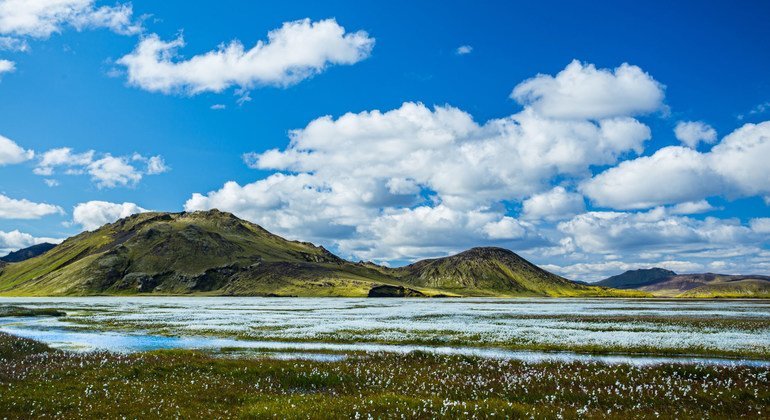Investing in clean air can save lives and fight climate change


This year International Day for Clean Air and Blue SkiesHeld annually on September 7, the event focuses on the theme ‘Invest in #CleanAirNow’ and highlights the economic, environmental and health benefits of investing in clean air.
This day was established in 2019 after the United Nations General Assembly noted the harmful effects of air pollution and recognized the importance of clean air to human life.
UN Secretary-General António Guterres said Pollution is a silent killer that can be prevented. and called on the world to “invest now so we can breathe easier.”
Invest in clean air
Mr. Guterres highlighted the dangers of pollution, noting that 99% of humanity breathes polluted air leading to millions of premature deaths globally.
“Pollution is also choking our economies and heating our planet, adding fuel to the fire of the climate crisis,” the UN chief said. “And it disproportionately affects the most vulnerable in society, including women, children and the elderly.”
Investing in clean air will require action by governments, businesses, development organizations and many others at regional and global levels, the Secretary-General said.
Mr. Guterres encouraged stakeholders to reduce fossil fuel use, switch to clean cooking and increase air quality monitoring.
“Investing in clean air saves lives, combats climate change, strengthens economies, builds fairer societies and promotes Sustainable Development Goals,” he said. “…let’s invest now so we can breathe easy knowing we are ensuring a healthier planet for everyone.”
Air quality and climate
Mr. Guterres’ message marking the international day highlighted some of the challenges raised in new report from the World Meteorological Organization of the United Nations (World Meteorological Organization), which details the impacts of climate change, wildfires and air pollution on human health.
The report notes that both the northern and southern hemispheres experienced “extreme wildfire seasons” in 2023 that resulted in human deaths and livestock losses.
“The 2023 wildfire season set a multi-decade record in Canada for total area burned, with seven times more area burned than the 1990–2013 average, according to the Canadian National Wildfire Database,” the report said.
Wildfires have also worsened air quality in eastern Canada and the northeastern United States.
For that reason, WMO Deputy Secretary-General Ko Barrett speak Climate change and air quality cannot be treated separately.
“They go hand in hand and must be addressed together,” Barrett said. “It is a win-win situation for the health of our planet, our people and our economy to recognise the interrelationship and act accordingly.”
‘It knows no borders’
Also recognizing the need for global change as international day for clean air approaches is the United Nations Environment Programme (UNEP) describes air pollution as “the greatest environmental health risk of our time” noting that it exacerbates climate change, reduces agricultural productivity and causes economic damage.
“Every person on this planet has the right to life,” said Inger Andersen, Executive Director of UNEP. breathe fresh airBut almost everyone has this right violated.”
Ms Andersen agrees with the UN Secretary-General’s call for global investment in clean air.
“We are asking countries, regions and cities to set strong air quality standards,” she said.
“We ask them to support renewable energy and sustainable transport to force industry to comply with strict emissions standards and integrate air quality into climate action,” Ms. Andersen continued.
UNEP says if air pollution is tackled proactively, we can achieve transformative change and get cleaner air.


